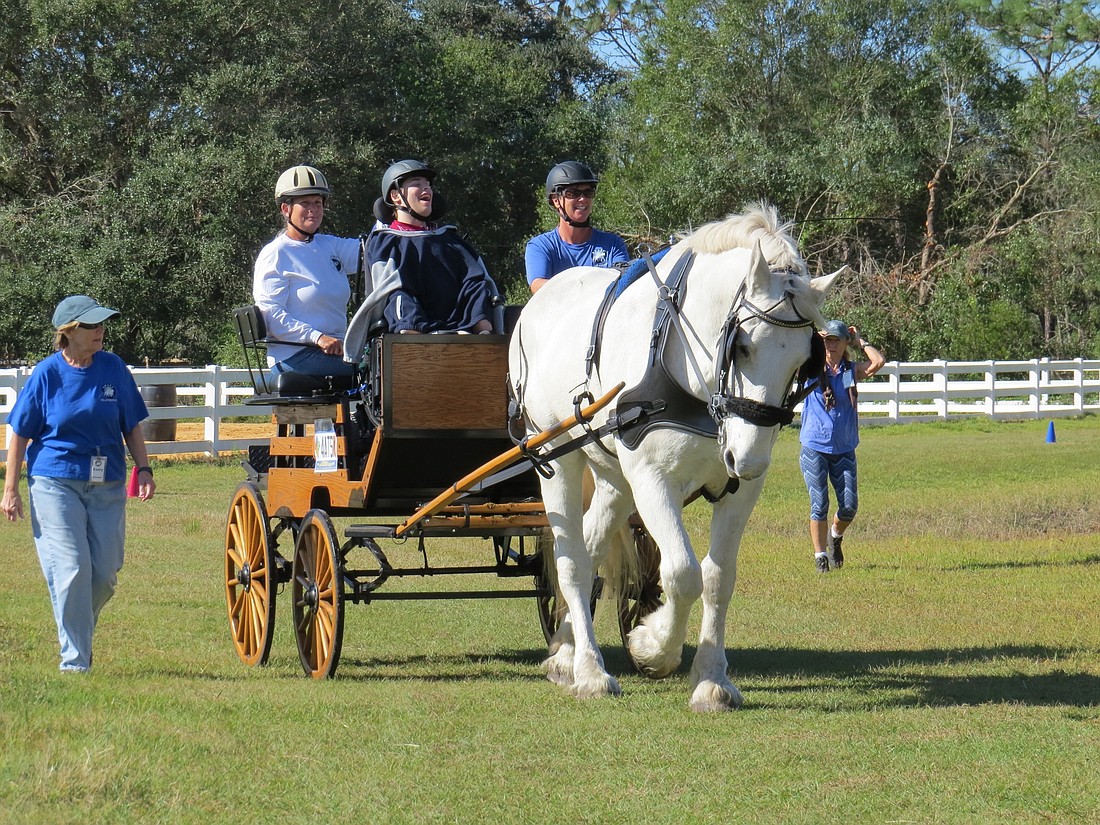- April 11, 2025
-
-
Loading

Loading

One of the most important workers at the Sarasota Manatee Association for Riding Therapy will be ready to retire in about a year.
That has caused quite the concern since the worker is Sterling, a 17.2-hand Percheron therapy horse who pulls a carriage for children and adults who cannot ride in a saddle.
Fortunately, a $34,000 grant from the Charles and Margery Barancik Foundation has allowed Brandi Ezell, the SMART executive director, to begin the search for Sterling’s replacement. The Barancik Foundation has a mission of promoting meaningful changes in the areas of education, humanitarian causes, arts and culture, the environment and medical research.
SMART’s mission statement is to “enrich the lives of people with special needs through therapeutic horse-related programs.”
Ezell said grant funds will be used to buy a horse and upgrade or replace its carriage.
“This is a huge deal,” Ezell said of the grant. “Sterling is 22. He’s going to be ready to retire, and it takes a certain type of temperament and quality of horse to (pull carriages). It may take six months to a year to find a solid horse.”
Ezell said a horse could cost approximately $8,000. It must be able to handle wearing a harness and standing still for long periods, for example.
SMART also plans to use a portion of the proceeds to either retrofit the program’s existing Thornlea wheelchair-accessible carriage with wheels better suited to handle muddy conditions or to purchase a new carriage altogether, Ezell said. A new carriage likely will cost at least $25,000.
If any of the grant money remains after those purchases, it would go toward training the horse, Ezell said.
Most participants in SMART’s riding therapy programs ride horseback, but SMART barn manager and riding and driving instructor Samantha Toomey said offering the driving therapy program is important because it enables more people to receive the benefits of riding therapy. Such benefits include building confidence, cognitive skills, core muscle building, balance, eye-hand coordination and fine motor skills.
“The benefits are similar,” she said of carriage driving.
Ezell said some of their clients are afraid of riding horses and others have other conditions, like using oxygen tanks, that prevent them from riding in a saddle.
“It gives them the opportunity to still participate,” Ezell said.
Ezell said Saturday morning driving therapy participants help with grooming and caring for the horse and harnessing and unharnessing it, as well as other tasks related to their lessons.
“They love it,” Ezell said. “They love being able to be part of it all.”
SMART has nine students in its driving therapy program.
In 2018, SMART provided services to 630 children and adults across all its programs. It has partnerships for services with organizations such as Beyond the Spectrum, Selah Freedom and The Mark Wandall Foundation.